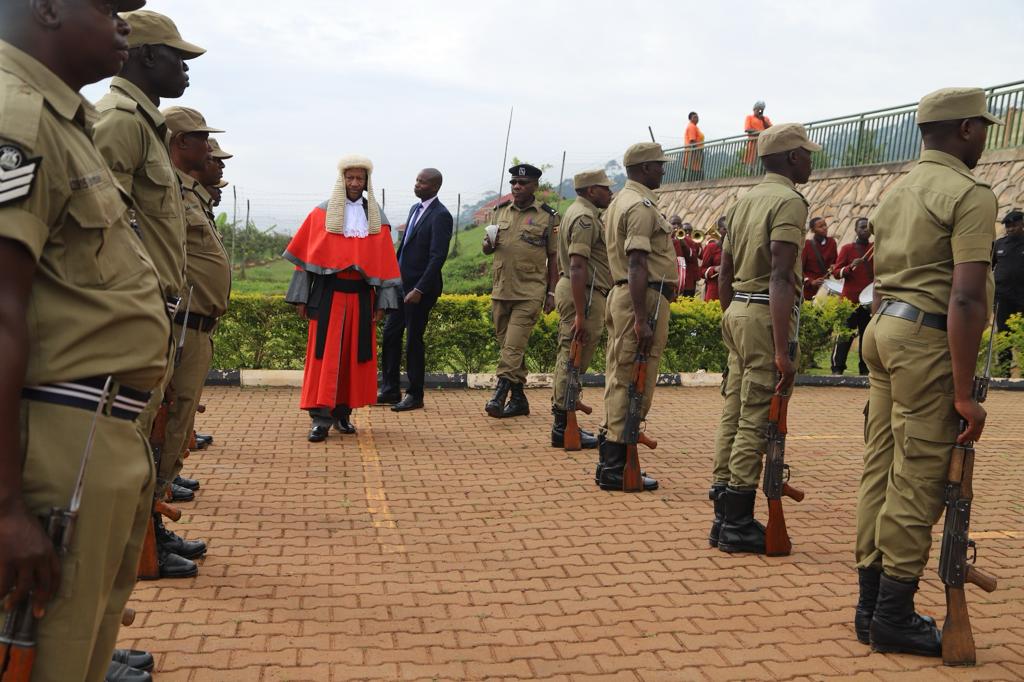Kerry Howard Mwesigwa.
KABALE, November 27, 2023 | In an effort to tackle the persistent challenge of case backlog and ensure broader access to justice, the Deputy Chief Justice of Uganda, Hon. Justice Richard Buteera, officially kicked off a three-day Criminal Appeals Session at Kabale High Court. The session, part of the judiciary’s comprehensive strategy, aims to expedite the resolution of 33 appeals.
A panel of three judges, including Hon. Justice Muzamiru Kibeedi, Hon. Justice Christopher Gashirabake, and Hon. Justice Oscar Kihika, will preside over the cases. The cause list reveals that the appeals encompass a range of criminal offenses, with murder leading the tally at 17 cases, followed by defilement with 11. Other cases on the docket include robbery (3), rape (1), and manslaughter (1).
The Deputy Chief Justice applauded the collaborative efforts of the Office of the Director of Public Prosecutions and advocates, emphasizing the timely submissions that facilitated the scheduling of the session. He also urged court users to embrace innovative solutions like Small Claims Procedure, Mediation, Plea Bargaining, and Arbitration, citing successful implementations in jurisdictions such as America.
Various stakeholders, including political leaders, religious figures, police officers, and members of the public, expressed their support for the initiative. Mr. Nelson Nshangabasheija, the LCV Chairperson of Kabale District, went a step further, requesting the extension of the Court of Appeal to Kabale. He assured the district’s willingness to allocate land for this purpose and urged the judiciary to consider posting a Magistrate Grade I in every sub-county within the district. This, he argued, would enhance accessibility of court services in remote areas given the challenging terrain.
The session aligns with the judiciary’s overarching plan to clear over 1,000 criminal appeals in the Court of Appeal by year-end. Similar initiatives have been launched in various regions, including Mbale, Jinja, and Mbarara, underscoring the judiciary’s commitment to overcoming challenges posed by inadequate funding, staffing, infrastructure, and the impact of the COVID-19 pandemic.
















